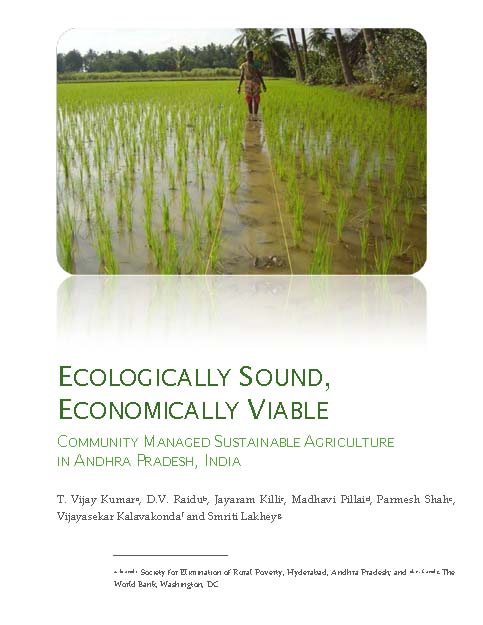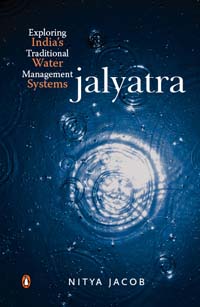/regions/political
Political
Sekhar Raghavan speaks about saving our water
Posted on 16 May, 2011 06:51 PMContent Courtesy: Rotary Madras South
Talk by Sekhar Raghavan, Rain Centre, at the Rotary Club of Madras South weekly meeting on 26 April 2011 on rainwater harvesting and ecological sanitation - Part 1.
National Coordination Group Meeting, Safai Karmachari Andolan, 19th May 2011, New Delhi
Posted on 16 May, 2011 06:45 PMOrganizer: Safai Karmachari Andolan
Venue: Vishwa Yuvak Kendra, Hall No.S 1, Circular Road, Teen Murti Marg, Chanakyapuri, New Delhi
Water quality in Penukonda region of Anantapur district - A field report by Arghyam
Posted on 16 May, 2011 06:23 PMIntroduction
SEDS approached Arghyam to seek advice on the quality of drinking water in the area. Anantpur is the second most drought-prone area in India, and a lot of work has been done to deal with the water supply situation by the Government of Andhra Pradesh as well as NGOs and charities such as SEDS and the Sai Baba Trust, to name a few. There seems to be an adequate supply of water in the district, but very little or no attention has been paid to the quality of water.
Acara Challenge 2011 – Finals, 16th May, 2011 at Institute on the Environment, St. Paul Campus, Minnesota and live webcast
Posted on 16 May, 2011 12:32 PMOrganizer: Acara Institute on the Environment
Venue: Institute on the Environment (IonE) University of Minnesota, St. Paul Campus, 1954 Buford Ave, 325 VoTech Building. All presentations will be webcast live.
Description:
The Acara Challenge is a unique way for a university to get their students involved in entrepreneurship and sustainable design for social change. The purpose of the Acara Challenge is to: Engage students in a multi-discipline, multi-country collaboration to develop sustainable solutions and business models to challenging global social issues. Incubate and implement the winning plans into successful sustainable social businesses.
Synergos calls for Senior Fellows 2012- Apply by 1st July 2011
Posted on 16 May, 2011 12:19 PM The Senior Fellows program is administered in partnership with The Synergos Institute Cananda and is made possible in part thanks to support from Kim Samuel Johnson.
The Senior Fellows program is administered in partnership with The Synergos Institute Cananda and is made possible in part thanks to support from Kim Samuel Johnson.
The Senior Fellows Network is comprised of distinguished international civil society leaders committed to collaborative efforts that address the underlying causes of poverty and inequity.
Launched in 1999, the Senior Fellows program links extraordinary civil society leaders in a worldwide learning, service and action network. The network aims to strengthen the capacity and opportunities for these leaders to be catalysts and play a major role in partnerships that address the systemic causes of poverty and promote sustainable social change.
Ecologically sound, economically viable community managed sustainable agriculture in Andhra Pradesh – A report by Society for Elimination of Rural Poverty and World Bank
Posted on 15 May, 2011 09:56 PM This report by Society for Elimination of Rural Poverty and World Bank deals with Community Managed Sustainable Agriculture (CMSA) in Andhra Pradesh. The paper also analyses the initial results of economic and environmental impact of CMSA, distills the key lessons learned from the Andhra Pradesh experience, and draws possible implications for future.
This report by Society for Elimination of Rural Poverty and World Bank deals with Community Managed Sustainable Agriculture (CMSA) in Andhra Pradesh. The paper also analyses the initial results of economic and environmental impact of CMSA, distills the key lessons learned from the Andhra Pradesh experience, and draws possible implications for future.
To address the adverse impacts of green revolution, the alternative approach to manage agriculture i.e., CMSA is being tested and practiced in the State. The CMSA approach replaces the use of chemical pesticides with a combination of physical and biological measures—including eco-friendly bio-pesticides—and complements it by adopting biological and agronomic soil fertility improvement measures leading to reduced use of chemical fertilizers.
Hydrological and farming system impacts of agricultural water management interventions for sustainable groundwater use in North Gujarat - A paper by Institute for Resource Analysis and Policy
Posted on 15 May, 2011 08:56 PMThe report by Institute for Resource Analysis and Policy (IRAP) and Society for Integrated Land and Water Management (SOFILWM) presents the findings of a research study undertaken in north Gujarat region, an area which has been undergoing significant changes in its farming systems as a result of several developmental interventions.
The study looked at a project initiated by IWMI and managed by SOFILWM in which water-efficient irrigation devices, water-efficient crops and land management practices were introduced among farmers in an effort to help them cut down groundwater use in irrigated agriculture without adversely affecting the economic prospects of farming.
Pampered views and parrot talks – In the cause of well irrigation in India – A paper by Institute for Resource Analysis and Policy
Posted on 15 May, 2011 06:14 PMIt is widely held that surface irrigation is becoming increasingly irrelevant in India’s irrigation landscape in spite of increased investments, and therefore future investments in irrigation should be diverted for well irrigation.
Jalyatra: Exploring India's traditional water management systems
Posted on 14 May, 2011 07:34 PM Jalyatra - Exploring India's traditional water management systems, by Nitya Jacob is an ecological travelogue that looks at links between water, society and places It describes in detail what existed, how it fitted into the socio-cultural milieu and was appropriate for the local climate and geography. It then examines reasons for their decline, as indeed most have, in recent decades.
Jalyatra - Exploring India's traditional water management systems, by Nitya Jacob is an ecological travelogue that looks at links between water, society and places It describes in detail what existed, how it fitted into the socio-cultural milieu and was appropriate for the local climate and geography. It then examines reasons for their decline, as indeed most have, in recent decades.
While recording the dismal state of traditional systems, the author stumbles upon small initiatives that have brought about significant transformation across regions. It refers to noisy hidrums and gharaats, the river-run flour mills of Uttaranchal, the technologies whose potential has yet to be fully realised. It looks at water harvesting structures of southern India—the eris and ooranis. However, it admits that the average person is singularly uninterested in protecting the environment.
Jalyatra captures the efforts of NGOs and enlightened individuals striving to revive these systems. It makes the case for a mass movement to revive traditional water management systems, especially village ponds, across the country as the way to ensure water security in India. In Chambal, the author meets Brij Mohan Gujjar, dacoit turned water conservationist, who is doing valuable work on the check dams designed to control the flow of water in the ravines; and in Shillong, Lan Potham shows him the uses of the easily available bamboo to construct the shyngiar which irrigates his areca nut plantation.
Estimation of groundwater resources in Andhra Pradesh - A report by the State Groundwater Department - GoAP (2002)
Posted on 14 May, 2011 05:19 PMThe sustainable development and management of the resource requires precise quantitative assessment based on valid scientific principles. The updated Groundwater Estimation Committee methodology – 1997 has been used and detailed guidelines were formulated through discussions and deliberations in the State Level Groundwater Estimation Committee.